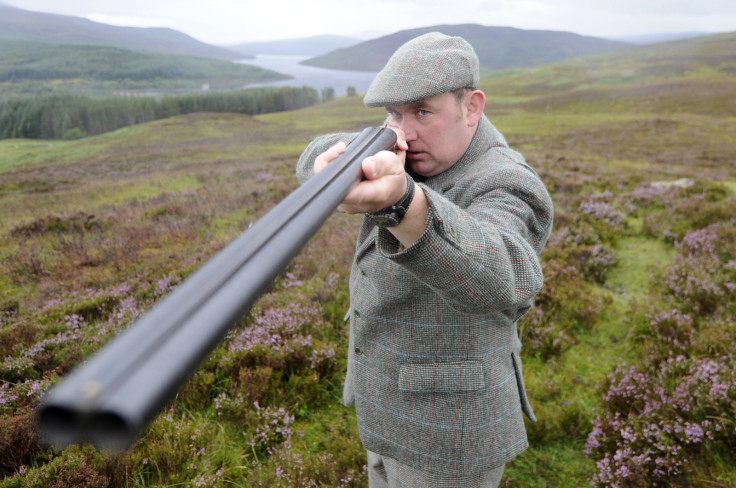The inglorious 12th: Twitter all of a flutter over the start of grouse shooting season

The battle over the rights and wrongs of grouse shooting, long the preserve of Britain's aristocratic elite, is not being fought against the picturesque backdrop of the north's windswept moors but online, and, perhaps appropriately for bird lovers, in a war of tweets.
The start of the grouse hunting season on 12 August, the glorious twelfth or the #ingolrious12th depending on your point of view, is being hotly debated online and an e-petition to ban driven grouse shooting has received more than 12,251 signatures.
The problem twitchers have with the sport is not the prospect of a half dozen Cecils and Humpherys prancing through the heather with loaded shotguns but more the protection of endangered birds of prey such as hen harriers and the effects of intense moors management on other species.
"Today our native Red Grouse will [be] driven into a hail of lead. Hen Harriers killed so this can happen," one Twitter user wrote.
Another posted pictures of dead birds and hares which are believed to carry a parasite dangerous to grouse. He wrote: "Killed so that morons with money can take pot shots at a native species".
@ChrisGPackham @trussliz Killed so that morons with money can take pot shots at a native species #inglorious12th pic.twitter.com/FURuFKmqF1
— Steve Albaya (@Steveredwolf) August 12, 2015Rare Bird Alert, one of dozens of bird protection groups calling for the banning of grouse shooting, told IBTimes UK that it was "disgusted by the practice" of grouse shooting.
A spokesman for the organisation said the crux of the issue lay with gamekeepers who were killing the grouse's predators, even protected species, to make sure stocks were high for the hunting season in northern England and across Scotland.
"The gamekeepers manage the land intensively and take out just about any other predator they can find: birds, mammals, anything that may eat either adult grouse but mainly young grouse.
"The persecution of raptors and birds of prey, particularly the hen harrier is the issue which has galvanised birdwatchers around the call to ban grouse shooting," he said.
@AnneatSaveMe What's glorious ? The nations youth want their raptors back - funeral of justice #Inglorious12th Pls RT pic.twitter.com/Gywky117k9
— Chris Packham (@ChrisGPackham) August 12, 2015The Royal Society for the Protection of Birds, which emphasises its neutrality on the issue of game sports, and has said gamekeeping practices do help in some areas of conservation, is nevertheless concerned by the failure of hen harriers to reproduce in significant numbers.
"Hen harriers are not doing well in the UK. The problem is that the hen harrier only had six pairs nesting across the whole of Northern England," Grahame Madge from the society told IBTimes UK. "Estimates show that we should have about 300 pairs and we know that the bird is largely absent from huge swathes of northern England and Scotland and that is because of illegal persecution," he said.
"It is illegal to persecute these birds, as they are protected by the Wildlife and Countryside Act but just yesterday a hen harrier was found shot on an estate in Scotland. Evidence of actually who is killing them is a little thin although there is pretty compelling evidence over time of sustained killing of birds of prey by shooting estates in general," he explained.
This should be the only way to shoot Red Grouse.#Inglorious12th #HenHarrier @MarkAvery pic.twitter.com/UZuc6QIAjO
— Anita Teague (@anitateague) August 12, 2015Figures from the RSPB show that 20 offences including the setting of traps for birds of prey, shooting birds and laying poison have been punished between 2001 to 2013.
Amanda Anderson, from the Moorlands Association which represents gamekeeping estates across England and Wales, said these gamekeepers were "a few bad apples" and added she felt the contribution of the grouse industry was overwhelmingly positive.
"Our members look after one million acres of the upland and every inch of that is open access. That management is 365 days of conservation work each year regardless of whether there are surplus wild grouse to shoot or not," she explained.
© Copyright IBTimes 2024. All rights reserved.






